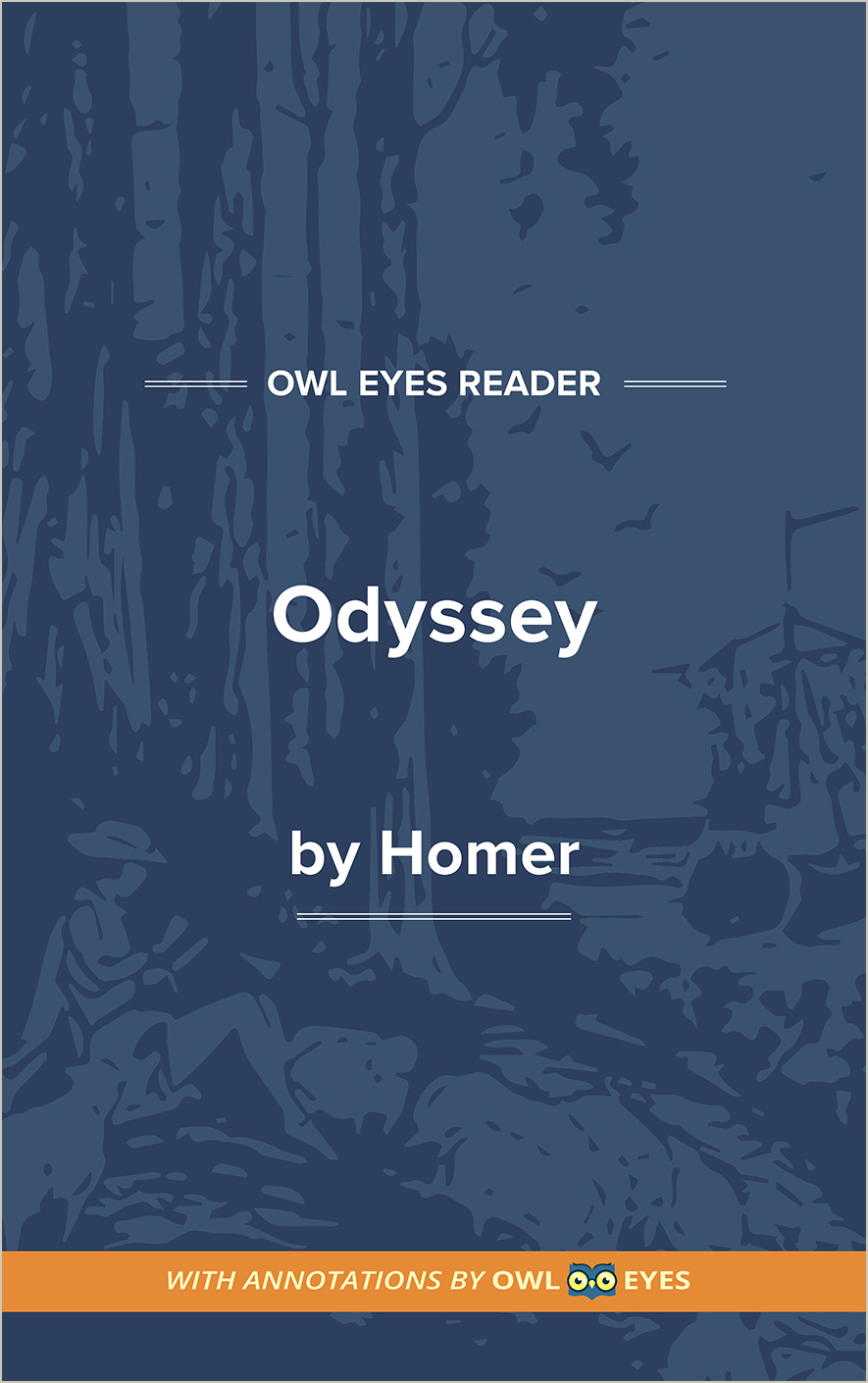Study Guide
Analysis Pages
Summary
Read at its most basic level, the Odyssey recounts Odysseus’s struggles to return to his native island of Ithaca after ten years of fighting at Troy. It appears to be a highly particularized account of one warrior’s struggles and sufferings. No doubt exists that Odysseus remains the focus; though names of his crew appear at intervals, they collectively constitute a vehicle that gets their master part of the way home, and all of them die long before their master reaches home. Even the mythic Phaeacians, who literally place the sleeping hero on his remote western island, remain peculiarly nameless, except for the family that rules them, but Alcinous, Areté, and Nausicaä merely approve this final phase of the journey. The seafaring Phaeacians themselves suffer permanent hardship for their good deed: Poseidon landlocks their harbors in retribution for Odysseus’s having blinded Polyphemus the Cyclops, the sea-god’s monster son.
Once Odysseus finally realizes that the Phaeacians have actually returned him to Ithaca, and not merely abandoned him on a forsaken island in order to steal the treasure that their king had given to him, the hero proceeds to test everyone he meets, starting with Eumaeus, his swineherd, and Telemachus, the son whom he had to abandon in infancy in order to honor his commitment to fight at Troy. He tests his old nurse, Eurycleia, who, when she recognizes his scar received in youth during a boar hunt, appropriately venerates him. He tests his wife, Penelope, who has waited for Odysseus more than nineteen years, resisting more than a score of much younger suitors. Her stratagem of weaving and unweaving a funeral shroud for the aging Laërtes, Odysseus’s father, allows her to delay choosing a new husband, but it also allows this assortment of brash young men with decidedly uncourtly manners to move into Odysseus’s great hall and deplete the wealth of his household through their ceaseless banquets and irresponsible behavior. This irresponsibility extends to the moral sphere as well, for the suitors, in short order, corrupt the handmaidens of the household.
True to form, Odysseus arrives disguised as a beggar, tests the suitors, finds that they have abused the laws of hospitality, and kills them all. He ratifies this action by pronouncing moral judgment on the handmaidens, as well. Once they have cleaned the great hall of the suitors’ blood, he orders the handmaidens to be collectively hanged in the courtyard. While this mass slaughter is in progress, Phemius, the court rhapsode, is ordered by Odysseus to sing as loudly as possible to the loudest of musical accompaniments in order to cover the screams of those being killed. Furthermore, Odysseus enlists both Telemachus and Eumaeus as accomplices. The first thing that Odysseus and his nineteen-year-old son do together is, in effect, commit mass murder, then retreat to the suburban vineyard at which old Laërtes is awaiting the arrival of the fathers of the suitors, who are avid for vengeance. Another slaughter is about to begin when the goddess Athene, the mentor of Odysseus from the outset, calls a halt, and the Odyssey ends.
Seen in this way, Odysseus does not appear to be a very nice man, and certainly not very heroic. Even so, his epithet polutropos (many-wiled) implies that there is more to his character, and correspondingly to Homer’s poem, than this rather negative reading implies. Indeed, virtually every action of Odysseus admits of positive and negative interpretations. In this respect, Homer’s Odysseus mirrors humanity at large. To assess Odysseus positively, it is necessary to consider external particulars more carefully than has been done above. It is also important to bear in mind details that Homer assumes his audience knows and therefore does not, given the limited parameters of epic poetry, feel particularly obligated to supply.
First of all, Odysseus had never wanted to fight at Troy. He had been perfectly happy as king of his rural...
(The entire page is 2,193 words.)
Owl Eyes subscribers get unlimited access to our expert annotations, analyses, and study guides on your favorite texts. Master the classics for less than $5/month!

